In the name King of the North F1, the Latin letter F and the number 1 mean that it is a first generation hybrid. Perhaps the only disadvantage of this variety is the inability to get seeds from it. The second generation of eggplants will no longer produce fruits with the desired qualities.
One of the most popular eggplant varieties in the Asian part of the Russian Federation. Siberian Gardeners harvest up to fifteen kilograms of fruit per square meter and up to ten eggplants from each bush. The King of the North F1 was developed specifically for the northern regions, but it was also highly appreciated by vegetable growers in the Middle Zone.
King of the North F1 has fully earned rave reviews not only from summer residents of the northern regions, but also from industrial farms. Its keeping quality, uniformity of fruits and high yield make it suitable for industrial cultivation.
Description
In general, the variety is very unpretentious. King of the North is a frost-resistant eggplant variety that can tolerate light frosts. It does not like heat, which makes it difficult to grow it in the southern regions of Russia.
The bushes are low, only forty centimeters. The bushes are planted at a distance of forty centimeters from each other with a row spacing of sixty centimeters. Thus, on each unit of area there are about five bushes.
The variety is early ripening. You can get a harvest already in the fourth month after sowing the seeds. The fruits are long with purple skin.The cross-sectional diameter is small. With a short bush, the length of eggplants, growing up to thirty and sometimes forty centimeters, creates certain difficulties.
Eggplants that come into contact with the ground may rot. This issue can be solved by mulching the soil under the eggplant bushes.
The weight of the fruit is about three hundred grams. The fruit pulp has excellent taste and is white in color. There are no thorns on the calyx, which makes harvesting easier. The hybrid bears fruit throughout the summer.
Agricultural technology
Like other eggplants, King of the North F1 is grown in seedlings. Seedlings are often planted directly into open ground. Today, Siberians have adapted to growing not only this variety in open ground, but also other fairly heat-loving vegetables.
For this purpose, a bed with fresh manure is equipped. The bed is covered with polyethylene to preserve heat and speed up the decomposition of manure. Similarly, instead of manure, you can use green mass, which will rot into compost.
If the temperature inside the bed is too high, the eggplant roots will burn. You need to wait until the temperature inside the bed drops. After this, holes with a volume of about eleven liters are made in the garden bed, filled with compost and garden soil, and a young eggplant is planted in the hole.
At low temperatures (below minus nine), the seedlings are covered with plexiglass. The roots, warmed by the warmth of the pre-ripening manure, can work at full capacity. Eggplant develops a powerful root system in such a bed. As a result, the bush can set and form large fruits in larger quantities.
The second option for a warm bed is to construct it from available materials such as straw, reeds, sedge, sphagnum moss, and sawdust. The advantage of beds made of such material is that the substrate only lasts one season. Then it is dug up with soil or processed into compost. Due to the one-time use, there are no pathogenic bacteria in the substrate and the plants do not get sick.
Such a substrate heats up like manure ridges, due to which the plants develop faster and bear fruit more easily.
The location for planting the King of the North F1 is chosen in the sun and protected from the wind. Eggplant can be planted between bushes, you can protect the bushes from the strongest and coldest winds (you need to know the wind rose in a given area) with plexiglass.
Planting legumes is considered a good shelter from the wind. This method is more suitable for industrial cultivation, as it involves long ridges. There is another advantage to planting together with legumes for eggplant: during fruit formation, eggplant needs a large amount of nitrogen, while legumes produce nitrogen in the roots.
Growing eggplants outdoors in warm beds protects the bushes from fungal diseases common in the warm, humid microclimate of greenhouses.
Since the activity of fungi developing at the interface between air and soil is reduced by mulch covering the soil, fungi cannot harm eggplants. Such beds eliminate the tedious task of weeding, saving the gardener’s time. But you have to work hard when arranging them.
Reviews from gardeners who have tried to grow eggplant of the King of the North F1 variety in such beds unanimously boil down to “I won’t grow it in a greenhouse anymore.”. According to the testimonies of people who have tried both methods, in a greenhouse the eggplant drives away the green mass without intending to set fruit. While in outdoor beds the yield is often even higher than that promised by the hybrid manufacturer.

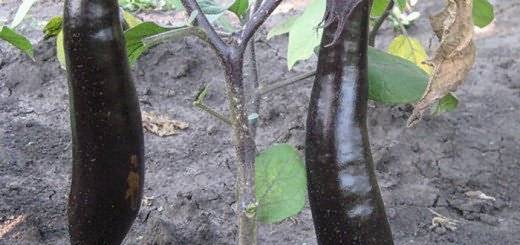
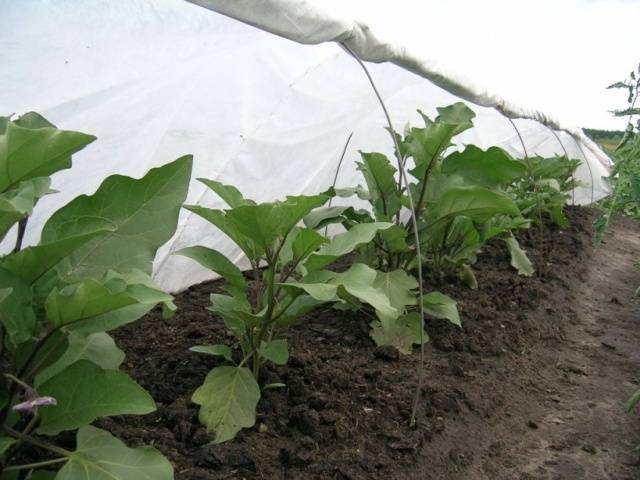
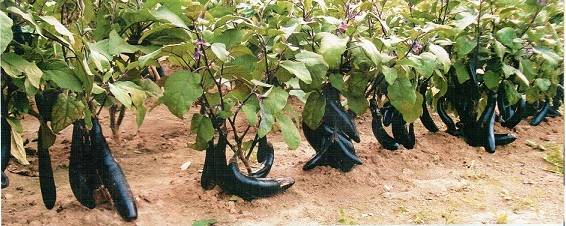
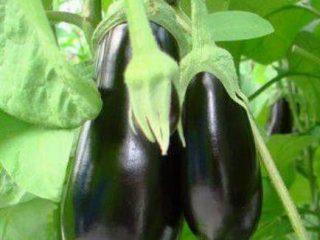
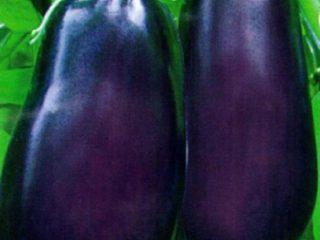
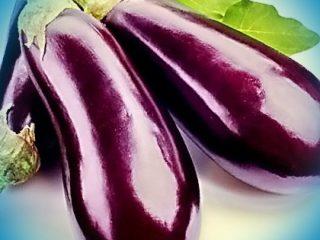
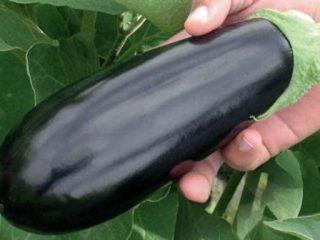
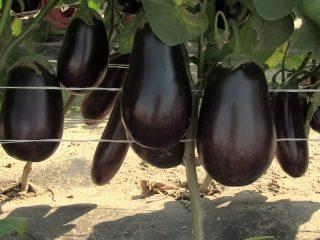

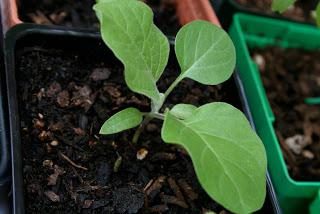
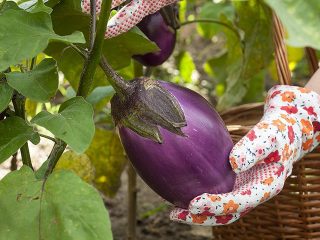
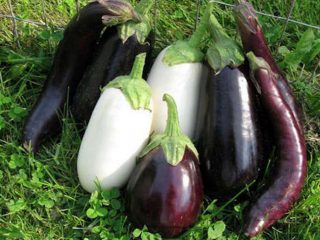
I have been growing King of the North eggplants for the second year in the Leningrad region.Today is July 11, 2020 and I have already picked 2 absolutely ripe eggplants. There are a lot of ovaries. I grow it in an arched greenhouse under ultra power. Moreover, I use the shelter only until the weather becomes stable without frost.
Very pleased, wonderful hybrid. I recommend